Living in Panama: Panama’s Best Options For Expats
Living in Panama: Panama is a land of mesmerizing natural beauty, vibrant folklore and traditions, and a diversity of lifestyle...
Top Destinations:
Whether you’re looking for fun and sun, a peaceful retirement, or the chance to earn some extra income, you’ve got a real world of opportunity open to you… In short, we’ve done our best to narrow down your best options, but only you can decide the right country for you.
Best For:
How Much Will It Cost You To Live Overseas?
The only honest answer is, we have no idea. And neither does anyone else. The only one who can answer that question is you. Here’s the most important thing to understand about budgeting your new life overseas…
Follow Us:
Join our Weekly Newsletter
Overseas Property Alert
Sign up for our weekly newsletter to receive expert insights on the best international real estate investment opportunities.
Upcoming Events
Live and Invest In Spain Conference
Offshore Wealth Summit
Greece Workshop
VALENCIA, SPAIN
Sep. 17-19, 2025
PANAMA CITY, PANAMA
Oct. 15-17, 2025
VIRTUAL
Nov. 13, 2025
Contact Our Events Team
Reach us with your questions by email at: events@liveandinvestoverseas.com
Unlock The World
Overseas Havens Reports
Conference Kits
Lahardan Books
Our Customer Service team is here to assist with any questions or concerns CustomerService@LiveandInvestOverseas.com
Top Destinations:
Whether you’re looking for fun and sun, a peaceful retirement, or the chance to earn some extra income, you’ve got a real world of opportunity open to you… In short, we’ve done our best to narrow down your best options, but only you can decide the right country for you.
Best For:
How Much Will It Cost You To Live Overseas?
The only honest answer is, we have no idea. And neither does anyone else. The only one who can answer that question is you. Here’s the most important thing to understand about budgeting your new life overseas…
Follow Us:
Join our Weekly Newsletter
Overseas Property Alert
Sign up for our weekly newsletter to receive expert insights on the best international real estate investment opportunities.
Upcoming Events
Live and Invest In Spain Conference
Offshore Wealth Summit
Greece Workshop
VALENCIA, SPAIN
Sep. 17-19, 2025
PANAMA CITY, PANAMA
Oct. 15-17, 2025
VIRTUAL
Nov. 13, 2025
Contact Our Events Team
Reach us with your questions by email at: events@liveandinvestoverseas.com
Unlock The World
Overseas Havens Reports
Conference Kits
Lahardan Books
Our Customer Service team is here to assist with any questions or concerns CustomerService@LiveandInvestOverseas.com
LIVE AND INVEST IN PANAMA

WORLD’S #1 RETIREMENT HAVEN
IN THE AMERICAS
We Value Your Privacy! We will not share your email address with anyone else, period.
Home » Best Countries To Live, Invest, And Retire Overseas » Panama : Everything You Need To Know In 2025 » Retire In Panama
Here are some reasons to retire in Panama: A low cost of living, friendly tax system, a growing economy, and amazing retiree benefits.
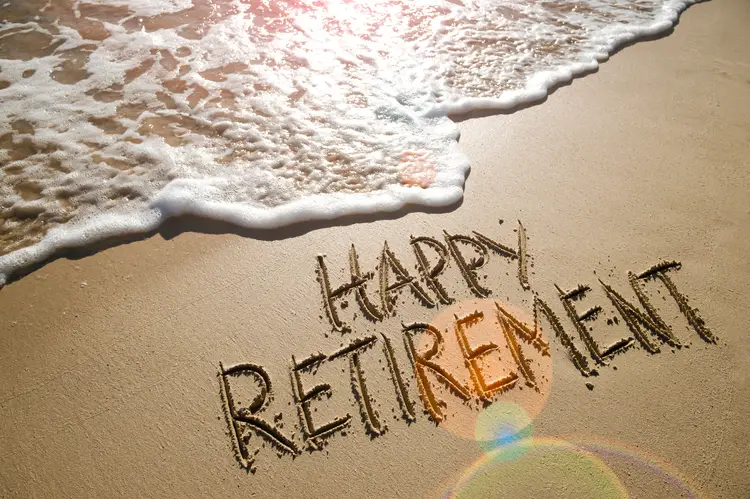
Panama is a top-notch retirement spot, known for its economical living expenses and a wide range of lifestyle options. From the dynamic city life in Panama City to the calm of its stunning beaches and highlands, retirees can find their perfect setting.
Retiring in Panama offers an unparalleled blend of affordability, natural beauty, and modern amenities, making it a top choice for expats seeking a stress-free lifestyle.
With its low cost of living, world-class healthcare, and enticing retiree incentives like the Pensionado Visa, Panama ensures retirees can stretch their savings without compromising quality.
From pristine beaches and lush rainforests to vibrant cities, Panama provides the perfect backdrop for living your retirement dream.
Panama offers incomparable advantages for the potential retiree or foreign resident. This country has great weather, a low cost of living. Additionally, it has a foreign-resident-friendly tax system, and one of the best banking systems in the region. The political situation is stable, and it has a bright economic outlook.
Panama has the world’s best program of discounts and perks for foreign retirees. No wonder Panama’s quickly become a top retirement haven.
You will fall in love with this multifaceted tropical country. Choose to settle in cosmopolitan Panama City, a calm sunny beach like Coronado, or in a cool mountainside town like Boquete. Your options are limitless.
If you rush south during winter, you’ll appreciate the year-round warm climate in Panama.

Reviewed By Kathleen Peddicord
Kathleen is the Live and Invest Overseas Founding Publisher. She has more than 30 years of hands-on experience traveling, living, and buying property around the world.

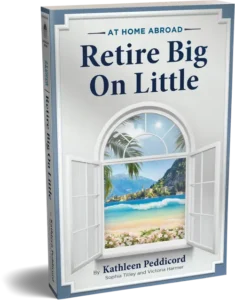

Start Your New Overseas Life Today
A world full of fun, adventure, and profit awaits! Sign up for our free daily e-letter, Overseas Opportunity Letter, and we’ll send you a FREE report on the 10 Best Places To Retire In Style Overseas Today 2024
We Value Your Privacy! We will not share your email address with anyone else, period.
Finding another country with the same level of retirement benefits is difficult. The pensionado visa makes retiring in Panama easy, even if you are well below the typical retirement age.
For example, benefits include discounts and conveniences that range anywhere from 15% to 50%. These discounts include restaurants, medications, transportation, and a whole lot more.
There’s a tax exemption to import your household items when moving to Panama. Other conveniences include special programs at participating businesses and even express lines. Retirees are able to forgo the usual lines at banks and some government institutions.
In Panama, you will never be bored. You can go to the theater, catch a movie, attend a concert, or watch the regular sporting matches.
Most importantly, enjoy all these activities for half-off when you retire in Panama. Your current entertainment budget could be cut in half.
Panama, the hub of the Americas, is attracting people from all over the world. The culture and cuisine mix allows you to taste some of the best meals. Enjoy from Caribbean to Chinese cuisine, and from French to Italian cuisine. What’s more, enjoy dining at restaurants and save on the bill. Restaurants give retirees anywhere from 15% to 25% off.
See the Panama Visa and Residency Information section to read more about the benefits of retiring in Panama.
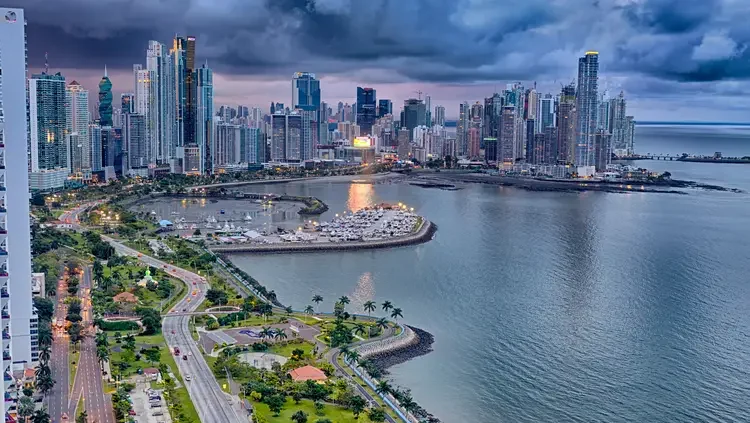
Live And Invest Overseas readers have heard us go on about Panama. We could have chosen to base our Live And Invest Overseas operation anywhere in the world…
We know Panama from a foreigner’s point of view like nobody else.
Here in Panama, over the past nearly three decades, we’ve bought pre-construction for investment and centuries-old French-colonial for renovation…
We’ve invested in raw land… both oceanfront and riverside… and commercial rentals…
Also, we’ve started businesses, formed corporations, and opened bank accounts…
In short, we’ve acquired full-time residency through the country’s ground-breaking “Specific Countries” visa program…
For instance, we’ve hired staff, shipped household belongings, put our son through school, sourced architects and carpenters, paid local utility bills, researched which health insurance plan makes most sense for our family, bought cars (because finally we’d had enough of dealing with Panama City taxi drivers!), gotten local driver’s licenses, even started a local franchise (a family project)…
We’re more bullish than ever on the prospects for this isthmus. Our Live And Invest Overseas HQ is thriving in Panama City… Lief and I continue to make new investments in this country that has fully rebounded from the pandemic shutdowns.
Why, specifically, do we call Panama the world’s #1 Do Everything Haven?
Here you go… Some reasons to retire in Panama:
Outside Panama City, it remains downright cheap. You could retire near the beach in Chitré, for example, on the country’s Azuero Peninsula, on a budget of US$1,000 per month or even less…
Panama City can be too hot and sticky for some retirees’ tastes, but, again, look beyond the capital, and you find pockets of near-perfect climates in some regions. Plus, if you prefer cool mountain temperatures to steamy sea-level ones, consider Boquete or, less discovered and therefore more affordable, Santa Fe…
This country has been attracting foreign retirees in growing numbers for more than a decade. It offers many and very user-friendly options for establishing foreign residency if you want to live here full-time, and it is home to established and welcoming communities of expats and retirees.
I don’t recommend it, but, in Panama City, you don’t have to learn to speak Spanish if you don’t want to.
Health care in Panama is of an international standard, and Panama City is home to Hospital Punta Pacífica, the only hospital in Latin America affiliated with and managed by Johns Hopkins Medicine International.
Like everything, medical costs are higher in Panama City than elsewhere in the country, but, even in the capital, a doctor’s visit costs US$50 or less.
Local Panama health insurance (which can be good, comprehensive coverage, all you need living in this country) can cost US$100 per month or less…
This is a place where things generally work—the internet, cable TV, phone service, etc., are all as reliable as anywhere in the States. The roadways and highway systems are being constantly expanded and improved. ATMs are on every corner.
The currency in Panama is the U.S. dollar, so U.S. retirees have no currency-exchange risk or confusion to worry about.
Panama City is an international travel hub, very accessible from North America. The flight from Miami, for example, is about two-and-a-half hours.
Retirement in Panama means you can save as much as 50% on everything from restaurant meals to in-country airfares, from prescription medicines to closing costs on your new beach house.
This is a nature-lover’s paradise, boasting some of the world’s best surfing, snorkeling, diving, sportfishing, birding, hiking, and adventure-travel opportunities anywhere on earth.
#13: This is a safe, welcoming place to call home
#14: Retirees you meet in Panama aren’t losing sleep over their futures
They’re embracing them.
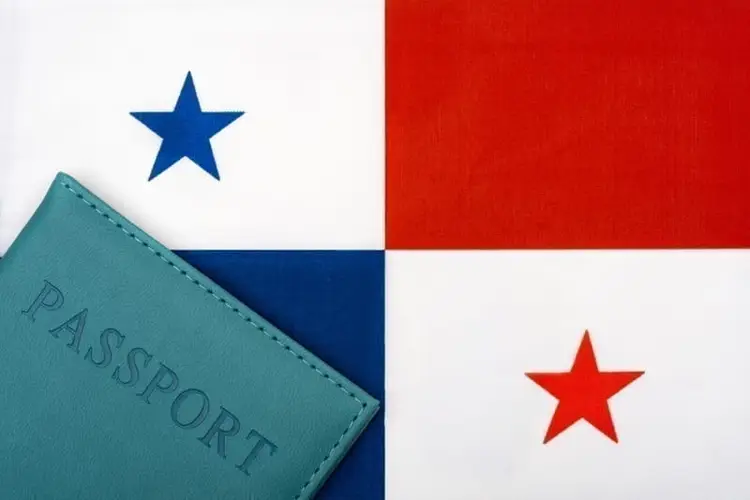
“I can only stay for about an hour. I have a meeting about establishing a food co-op at 10:30, and, right after, I’m getting a lesson on which bus to take to get to the El Dorado shopping center.”
Bobette Jones lives like a Panamanian. She walks nearly everywhere, and, to get places too far to walk, she hops on a bus. Bobette makes Panama her home seven to eight months a year and spends the rest of the year at her summer home on an island in Lake Huron.
She first came to Panama to learn Spanish before embarking on a two-month-long pilgrimage across Spain from the French border to the Atlantic Ocean. Bobette says she didn’t know a single Spanish word before coming to Panama and was disappointed to find that quite a few Panamanians do not speak English, contrary to what she had been told.
The expat and Panamanian communities embraced Bobette within her first weeks in the country, so she decided to pack up her life in Seattle and spend most of her time in Panama.
Her first address was an apartment in Punta Paitilla, an upscale oceanfront neighborhood in Panama City. In Punta Paitilla, she lived with friends, but, after deciding to make Panama a more permanent home, Bobette was looking for more comfortable accommodation.
Through a Panamanian doctor friend, Bobette rented an apartment in El Cangrejo. And, she admits her decision came down to the apartment and not the neighborhood. Now, after calling the neighborhood home for four years, she couldn’t be happier with her choice.
The apartment building Bobette lives in is just off El Cangrejo’s main street, Via Argentina. The building is more than 20 years old and was built at a time when apartments were constructed with ample square footage.
The apartment has two bedrooms, two bathrooms, and a large maid’s room, which has been converted into an office. The building has an immaculately maintained pool and attentive staff. Also, the building manager lives on-site. For all this space and service, Bobette pays about $1,200 a month in rent.
“I don’t own a car, and, living in El Cangrejo, I don’t need to,” says Bobette. “I walk everywhere. The grocery store, the beauty salon, the movie theater, not to mention I’m within a few minutes’ walk of what I consider to be some of the best restaurants in the country. If I can’t walk somewhere, I take a city bus or the Metro.”
Plus, a retired attorney, Bobette spent the later years of her working life in health research and preventative medicine. Impressed with the interest Panamanians and expats in this country have in alternative medicine, Bobette hopes to become involved in that field in some capacity.
She says her own natural medicine practitioner in Panama City goes beyond what is expected and even gives her advice over the phone for minor complaints. Bobette has experience with conventional medicine in Panama, too.
When she informed her international medical insurance provider that her doctor was recommending cataract surgery, the insurance company approved the procedure within 45 minutes, recognizing that having the surgery performed in Panama would cost them a fraction what it’d cost if Bobette underwent the procedure in the United States. She gives glowing reviews of Panama’s hospitals and doctors.
But, adjusting to life in a foreign country takes getting used to. The challenge for Bobette in Panama is getting used to the lack of customer service. “When I was living in my first apartment in Panama City,” she explained, “my water heater broke, and it took a month before the service technician came to repair it, even though he called every day and promised he was on the way.”
She recounts a handful of other frustrations with the service industry in Panama, but, overall, she is very happy with life in this country.
“I feel safer walking after dark in Panama than I do in Seattle. My wallet was taken from my purse once, but that was my fault for making it so accessible. Besides that, I’ve had no problems. I also like that it’s so easy to get to Panama, from just about anywhere in North America, and the airfares are usually cheaper than flying across a couple of U.S. states. The tropical weather doesn’t hurt either.”
And with that parting thought, Bobette is off to her meeting to find out how to start a food co-op. She is typical of a growing number of retirees living in Panama. They may have ditched the 9-to-5, but they are not slowing down.
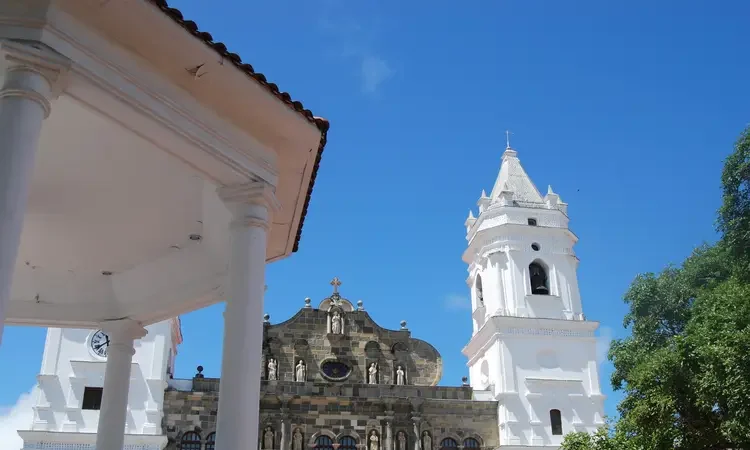
Panama is one of the best places in our world to think about living, retiring, investing, or starting over overseas.
The country’s two long coasts—one along the Pacific, the other on the Caribbean Sea—wildflower-covered mountains, and river-crossed rainforest serve up diverse options for living better and retiring well, sometimes on a very modest budget.
And Panama City—with its highway and metro systems and Johns Hopkins-affiliated Punta Pacifica—is without peer in the region.
Plus, this country is home to some of the world’s biggest communities of expats—in Panama City, the City Beaches area, and Boquete, for example—and uses the U.S. dollar, meaning no currency-exchange risk for retirees with U.S. dollar-denominated nest eggs.
Panama’s easy access to the United States and user-friendly residency programs are icing on the cake.
Today, as we wrap up our extended look at living and investing in the country where we’ve chosen to call home ourselves and to base our Live and Invest Overseas business, I’d like to take a step back and regroup.
If you were to decide (as we’ve done) that Panama should play a part in your new life overseas plans, what should you do next?
Here’s a getting-started guide to relocating to Panama…
Panama offers more than a dozen visa options for foreigners interested in taking up full-time residence, including the world’s gold-standard pensionado program, specifically designed for retirees, and its Friendly Nations visa, which is among the easiest residency options available from any country and allows you to work in the country.
Other residency options that could work for you, depending on your circumstances, include a reforestation visa, an investor visa, a small business visa, and an employment visa.
If you’d like to be able to come and go as you like from Panama indefinitely, speak with a licensed Panamanian lawyer to review all relevant residency visa options.
Important considerations to put on the table at the start of the conversation include whether or not you want to start a business or be able to work while in the country and whether or not you’re interested in acquiring a Panamanian passport.
One important thing to understand as you launch a search for a place to live is that rentals of less than 45 days are illegal in Panama City… though not in the rest of the country.
Nearly all accommodation in the country’s “interior” (that is, everywhere in Panama outside the capital) is rented on a nightly or weekly basis.
Properties both to rent and to buy aren’t hard to come by, but the best way to find them is not online, where listings can be outdated and misleading. It’s better to search by word of mouth.
The first step to setting up your household is establishing a permanent address. You’ll need a lease agreement or property title to set up utilities.
Most apartments come with gas set up and included as part of the homeowners’ association fees and some include water. And, if you’ll be living in a private home, you can order gas tanks from a local gas company for US$50 for a 25-pound tank.
You’ll need to take your lease agreement or property title to Ensa, Edemet or Edechi, to have electricity installed and to the Instituto de Acueductos y Alcantarillados Nacionales (IDAAN) for water.
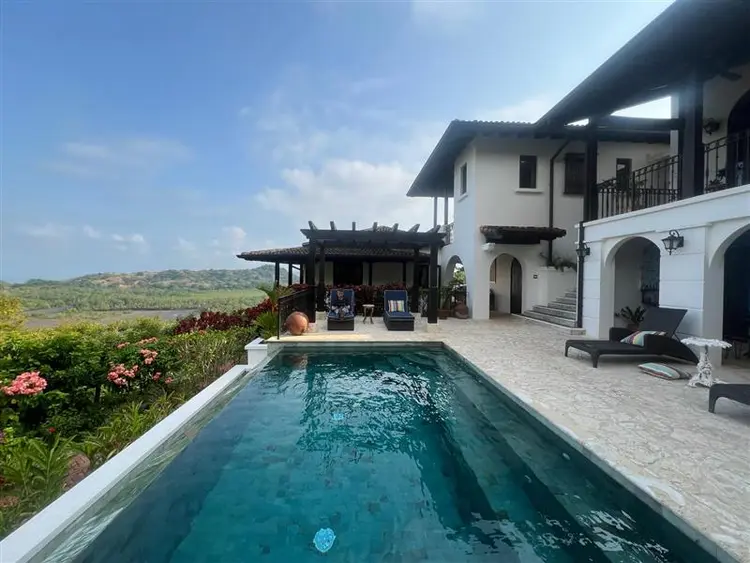
You can buy a pay-as-you-go chip for your cellphone from any “mini-super” or corner store. These can be recharged with enough minutes and data to last a month for US$15. A typical plan with unlimited data costs about US$45 per month.
The top two providers of cable and internet are Tigo and Cable & Wireless. Do some research before choosing because service levels vary depending on where in the country you’re located.
In Panama City and City Beaches area, you’ll have no problem outfitting your home in whatever style and according to whatever budget you’d like.
From Conway (think Target) and PriceSmart to high-end and boutique furniture shops, shopping for furniture and housewares in the capital is as easy as setting up a household in any major U.S. city.
Outside these areas, though, the challenge can be greater. Formal shopping options can be much more limited, and your best bet can be to find local craftsmen who can custom-make what you need (following photos torn from a Pottery Barn catalog, for example).
Panama City is one of the least walkable places in the world. In addition to the heat and rain, pedestrians must also contend with aggressive drivers, potholes, open manholes, lake-like puddles, and sidewalks that end without explanation, leaving you stranded on the side of a road.
Fortunately, you have alternatives for getting around town, including taxis, Uber, Metro Bus, and the Metro rapid transit system.
The Pan-American Highway passes right through Panama and begs you to hit the road.
You can drive in Panama on your current U.S. driver’s license for three months. After that, you’ll need to apply for a Panamanian driver’s license. To do this, you’ll need to visit your country’s consulate or embassy and take vision and hearing tests.
Connecting with people who have gone through the same process can make the relocation experience much easier.
Panama’s biggest concentrations of expats are in Panama City, Coronado, Boquete, Santa Clara, El Valle, and Pedasí. In these communities you’ll find groups, communities, and forums set up specifically for socializing and networking. You’ll have no trouble finding English-speaking company and making friends.
Panama City’s Cinta Costera, the 11-kilmoter stretch of paved oceanfront along the Bay of Panama where you can walk, jog, or cycle, is a great option for exercise outdoors in the capital.
This pedestrian zone is dotted with workout equipment, basketball courts, and soccer fields, as well as parks and gardens where you’ll see groups practicing yoga and tai-chi in the early mornings and evenings.
The popular franchise PowerCLUB, with gyms across the capital and beyond, is a great option for more focused training. Membership is about US$75 per month.
You can get by in Panama City, the City Beaches area, Boquete, and elsewhere in Panama without learning to speak Spanish, but we don’t recommend it. An effort to learn even a few words of the local language is appreciated and will go a long way toward helping you connect to your new life.
Arm yourself to start with the basics—buenos días, gracias, con permiso, hasta luego, por favor, and dónde está, for example—then, if you’re up for it, challenge yourself to become more conversant. The country boasts many good Spanish-language schools, including, EPA! Español en Panamá, in Panama City.
In your previous life, you may have taken certain levels of efficiency for granted in everyday interactions. Things work differently in Panama.
When a repairman stands you up for the third time, the electricity goes out for the second time in two days, and another Panamanian taxi driver cuts you off in traffic, it’s important to maintain your sense of humor.
You could let the day-to-day frustrations and struggles of life in the developing world send you screaming into your pillow… or you could laugh it off.
When life in paradise seems like anything but, reach out for support. Get in touch with an expat friend to share tales of challenge and woe.
You can remind each other what attracted you both to life in this sunny Shangri-La in the first place.

Reviewed By Kathleen Peddicord
Kathleen is the Live and Invest Overseas Founding Publisher. She has more than 30 years of hands-on experience traveling, living, and buying property around the world.



Start Your New Overseas Life Today
A world full of fun, adventure, and profit awaits! Sign up for our free daily e-letter, Overseas Opportunity Letter, and we’ll send you a FREE report on the 10 Best Places To Retire In Style Overseas Today 2024
We Value Your Privacy! We will not share your email address with anyone else, period.
Panama is a fantastic destination for retirement, offering a range of appealing choices. For example, expats can opt for the lively urban scene in Panama City, the serene mountain landscapes of Boquete, or the sunny beaches of places like Coronado or the Azuero Peninsula.
Panama has been attracting a growing number of foreign retirees for over a decade. It offers easy residency options for people who want to live here permanently, and it is home to welcoming communities of expats and retirees.
The 1:1 connection between the Balboa and the US Dollar helps keep Panama’s currency strong and steady. This stability positions Panama as a safe choice for financial activities in a region that can be volatile.
Living in Panama: Panama is a land of mesmerizing natural beauty, vibrant folklore and traditions, and a diversity of lifestyle...
Why were Lief and I drawn to Panama in the first place... more than 25 years ago... and how have...
Gary and Elva Bittner have taken the world by storm. Or at least by plane, sailboat, and car. Elva is...
I’ve made a career battling rose-colored viewpoints. No place is perfect, I remind you regularly, dear reader. Everywhere has its...


We Value Your Privacy! We will not share your email address with anyone else, period.
As seen in

© 2008 – Live and Invest Overseas™ – All Rights Reserved.
Top Countries
Budgets
Affordable
Resources
Real Estate
Overseas Property Alert
How To Become Independently Wealthy And Fund The Lifestyle Of Your Dreams
Buying Real Estate For Cashflow
Discover tips and strategies used by global property investing veterans
Explore Our Latest Posts
Learn how to invest and purchase property abroad…
Conferences
Live and Invest In Spain Conference
Offshore Wealth Summit
GREECE WORKSHOP
Contact Our Events Team:
Toll-Free U.S. and Canada:
1 (888) 627 8834
From Outside North America:
1 (443) 599 1221
Working Hours
Monday – Friday 08:00 am – 17:00 pm EST.
Reach us with your questions by email at: events@liveandinvestoverseas.com
Store
Overseas Havens Reports
Conference Kits
Lahardan Books
Services
Free Report
THE 10 BEST PLACES TO RETIRE IN 2025

Sign up to receive the FREE daily e-letter, Overseas Opportunity Letter and we’ll immediately email you our editors’ latest research report…
We Value Your Privacy! We will not share your email address with anyone else, period.
Follow Us:
© 2008 - Live and Invest Overseas - All Rights Reserved.
RETIRE OVERSEAS AND LIVE LIKE ROYALTY
Sign up for FREE to learn how. Plus, check out our FREE report on THE 10 BEST PLACES TO RETIRE
RETIRE OVERSEAS AND LIVE LIKE ROYALTY
Sign up for FREE and learn how to live the good life on a modest budget, find bargain property, and more. Plus, check out our free report on the 10 BEST PLACES TO RETIRE.
We Value Your Privacy! We will not share your email address with anyone else, period.